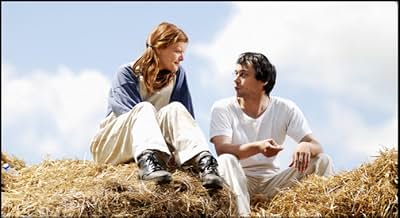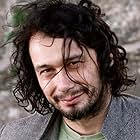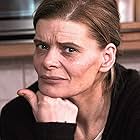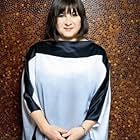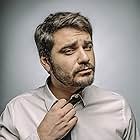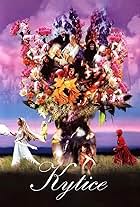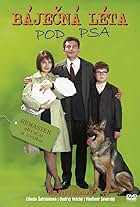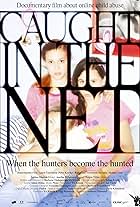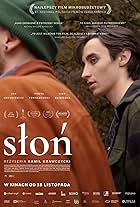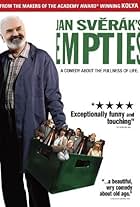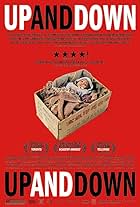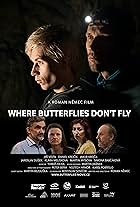Czech director Bhodan Slama's acclaimed The Country Teacher looks at love and loss at a rural dairy farm in the Czech Republic. It is a gentle, humorous, and often inspiring film about the struggle for self-acceptance and the resilience of people who must go through many spaces to discover that their lives work better together than apart. The film has gorgeous photography of the rural Czech countryside and includes the birth of a calf, perhaps an allegory for the need for three individuals to pull together. It is a narrative-centered film of considerable depth, one in which there is strong character growth and development, the kind of film Hollywood used to make.
When Petr (Pavel Liska), a gay teacher from Prague, arrives to teach science to youngsters in a small farming town, suspicions are raised by the principal (Cyril Drozda) about what he is running away from. The teacher, however, says everything is OK but his reticence and constant hangdog expression suggests otherwise. Petr manages to form a bond with a single mother, a fiercely independent cow-herder named Maria played by the exceptional Czech actress Zuzana Bydzovska. Distressed over the breakup of an abusive marriage, she looks to Petr to fulfill her needs but discovers in a hayloft that his needs may be quite different than hers.
Another example of unfulfilled longing is the relationship between Maria's lanky 17-year-old son Lada (Ladislav Sedivy) and Beruska (Teresa Boriskova), a girl visiting from the city who plans on studying law. Both seem to be involved with each other until Lada begins to question whether or not he is not smart enough for his more sophisticated girlfriend. Beru shrugs it off until she perhaps comes to the same conclusion and runs off with Petr's visiting ex-boy friend (Marek Daniel), a scatter-brained headhunter from Germany whose major talent seems to be one of disruption.
In one of the film's most revealing scenes, Petr visits his slightly overbearing mother (Zuzana Kronerova), also a teacher, in Prague and comes out to her after being questioned extensively about an ex-girlfriend. Though there is sadness, there is no bitterness or recrimination and his mother's only concern is that he is not alone. Petr is thoughtful and introspective and when he tells his raucous ex-boy friend that he will not engage in sex without love, we believe and trust him. Lada also trusts him as he begins to tutor him not only in Math but in life. Unfortunately, though the heart is strong, the flesh is weak and, after he rescues a drunken Lada from drowning, Petr gives in to his impulses and engages in some harmless but inappropriate touching when Lada is asleep.
Though there are the expected expressions of shock and name-calling, it is plain that the emotional bond that the three have formed outweighs their shock, even though it takes time for them to realize that. Backed by the gorgeous, meditative music of Vladimir Godar's Mater, The Country Teacher ultimately is not about coming out, however, but about coming to terms with one's own humanity. Pavel Liska is strong as the self-doubting, insecure teacher whose emotions range from love and longing to guilt and redemption and each person, in their own way, emerges from their own dark corner to reach a place of peace and self-acceptance.
In spite of some unwanted melodrama, The Country Teacher avoids stereotypes and achieves a searing emotional power by telling us that love is stronger than fear and that there can be no love without forgiveness, a sentiment that some film critics have labeled "implausible". I am reminded, however, of the country priest in Bernanos' novel Diary of a Country Priest, who said, "How easy it is to hate oneself. True grace is in forgetting. Yet, if pride could die in us, the supreme grace would be to love oneself in all simplicity as one would love any one of those who themselves have suffered and loved." The Country Teacher touches those moments of true grace.




